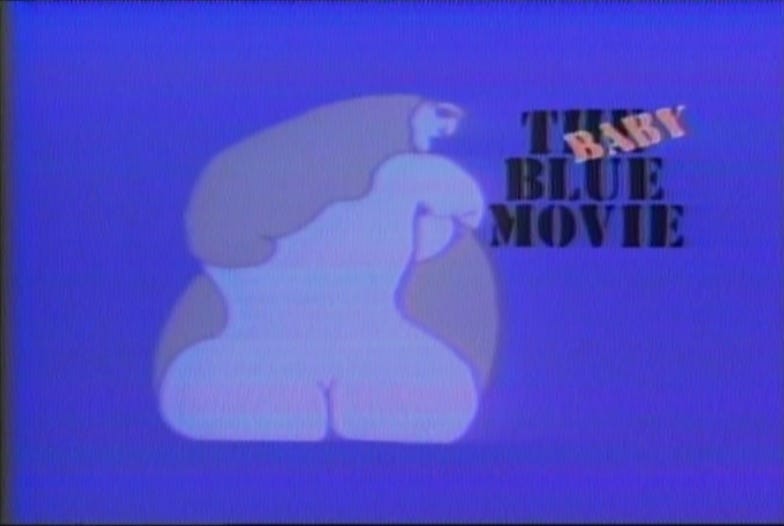
This is the 15th edition of the weekly Retrontario newsletter. Subscribe now to start getting it sent directly to your inbox:September 28, 1972 was an atypical night in the 20-year history of Toronto television. It was the Thursday when unconventional local broadcaster “CITY-TV,” Channel 79, Cable 7, signed on for the first time. “Ever dream of talking to your TV?” newspaper ads teased. Viewers could only be curious.
On the same evening that saw Canada defeat Russia in the Summit Series, Citytv went live with an abbreviated episode of The City Show, hosted by Warner Troyer, followed by the Dennis Potter mini-series Casanova from the BBC—and then a film in Portuguese.
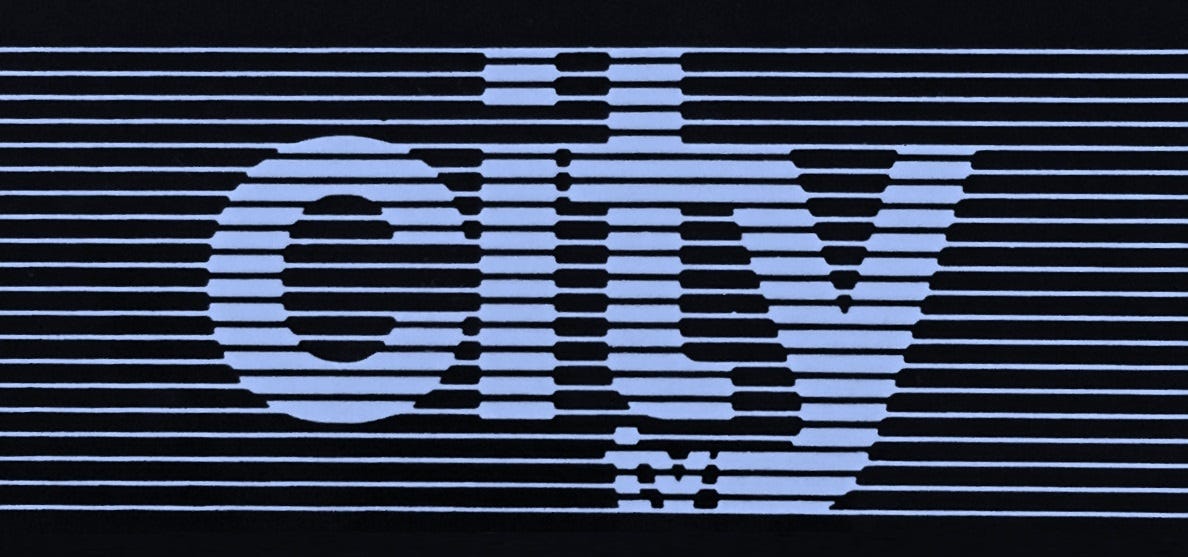
I am curious!
The following night, Citytv screened the Swedish erotic drama I Am Curious (Yellow), which initiated the Baby Blue Movie.
Often cited as the most vital programming decision that its founder and executive producer Moses Znaimer made, in order to help Citytv survive its challenging freshman year, these so-called “Baby Blues” have long been a subject of fascination for those who watched them—or at least heard hushed whispers about for decades afterward.
Sexy TV
Baby Blue Movie was the first regularly scheduled “adult” program to air on any North American television station. While often erroneously remembered as pornographic, these films were mostly European softcore comedies featuring nubile young women in various stages of undress—and would hardly bat an eyelid if broadcast today.
(When asked to comment on the subject matter, which happened often, Znaimer would describe the films as “moderately salacious” and “life-affirming.”)
I Am Curious (Yellow) was followed a week later with I Am Curious (Blue). Other titles included Naked and Free, Camille 2000, All the Loving Couples, Teresa and Isabelle, Shame Shame Everybody Knows Her Name, Bummer, Dark Side of Tomorrow, Fire in Flesh, The Golden Box, and Wild Honey.
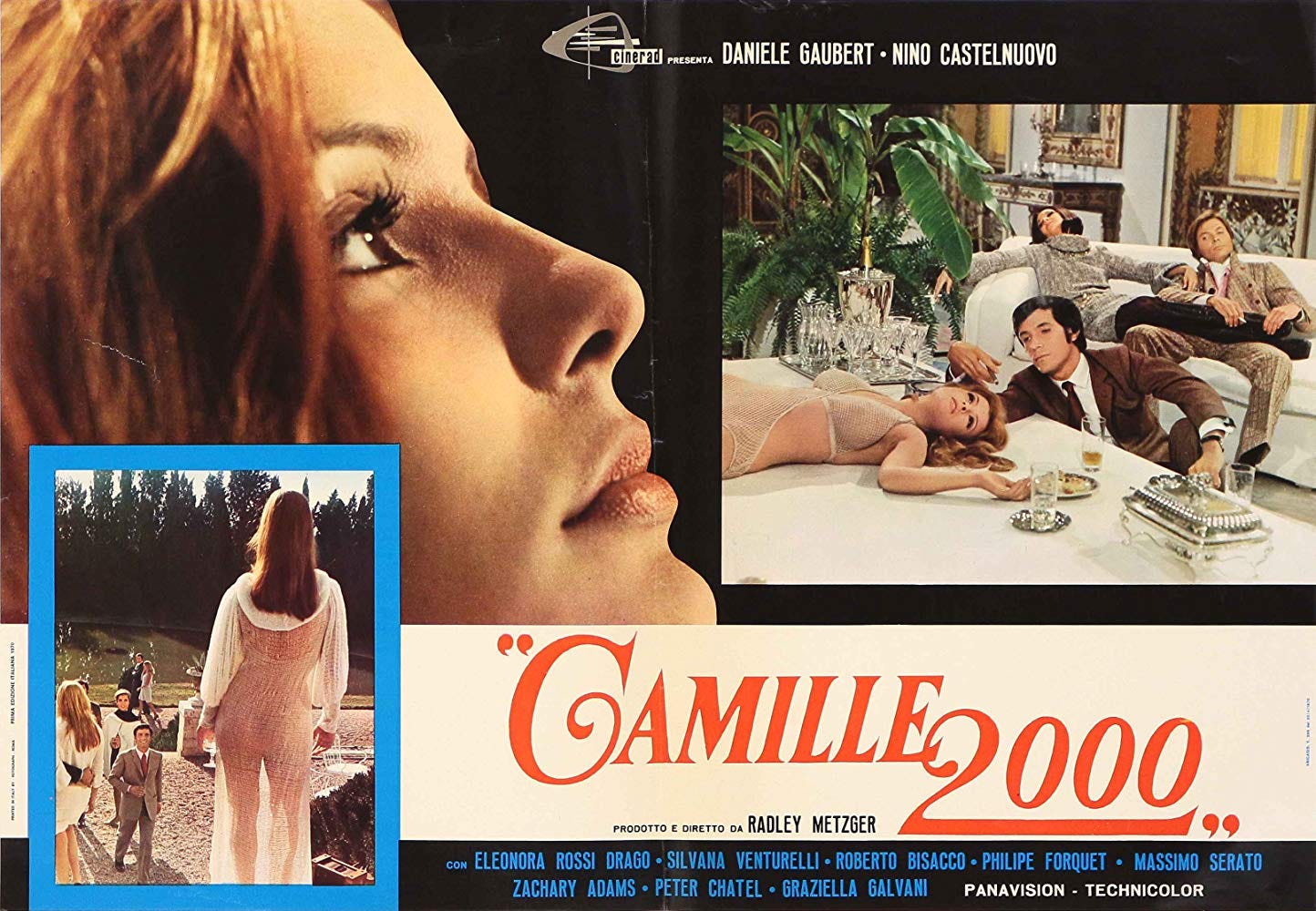
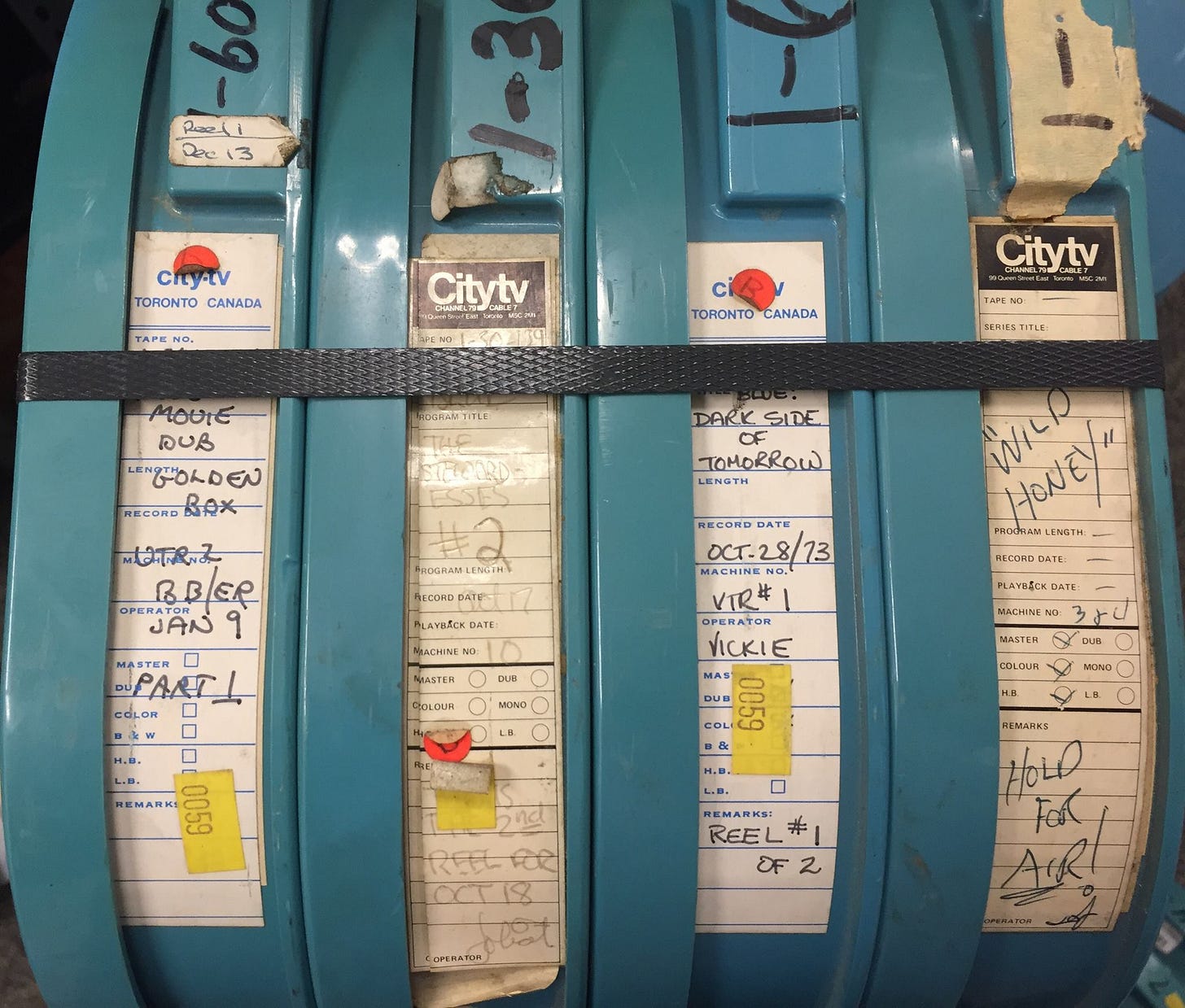
“May offend some viewers”
Discretion was advised before each film:
The following Baby Blue Movie could have explicit sexual scenes and nudity, which may offend some viewers. If you think you may be offended, we ask that you change the channel for the next two hours.
The run far exceeded expectations: 250,000 viewers eclipsed any competitor. (Citytv was in about 450,000 homes, because of its UHF dial status.) The commercial spot rate of $250 per minute was double what they sold for elsewhere on the schedule—and they were booked to the max, months in advance. At its peak, the Baby Blue series was being watched by 60 per cent of the Toronto audience.
96, nice (albeit upside down)
To capitalize on their new found glory as a purveyor of “Sexy Television,” Citytv picked up a raunchy Australian serial, Number 96:
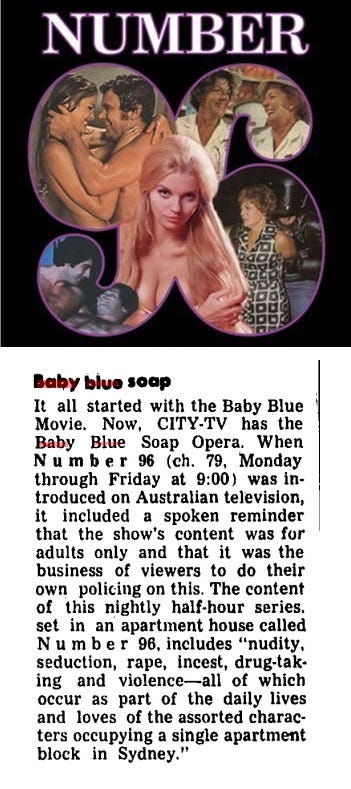
From Buffalo, with love
The reputation of Baby Blue led to tales of U.S. tourists flooding local hotels on Friday nights. Down in Batavia, New York, people would apparently drive their portable TVs to the highest hill between Rochester and Buffalo in order to soak up the signal.
And yet, Citytv found it increasingly challenging to find affordable movies to show. The attention was driving the cost far above what these schlocky titles were worth.
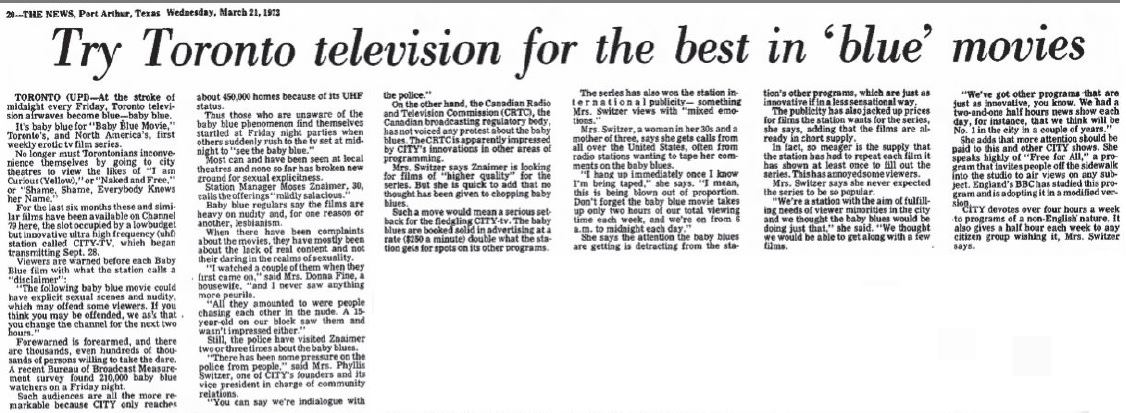
Meanwhile, the Baby Blue continued to generate interest around the world. Articles appeared in the Wall Street Journal and New York Times, along with newspapers in Tokyo, London and Melbourne. (The above article was printed in a Port Arthur, Texas newspaper.)
Ontario premier William Davis only contributed to the hype after he promised to crack down on the expansion of sexual permissiveness. When asked by a reporter about the questionable content on Citytv, he responded: “Don’t even get me started on Baby Blue.”
Staged Blue
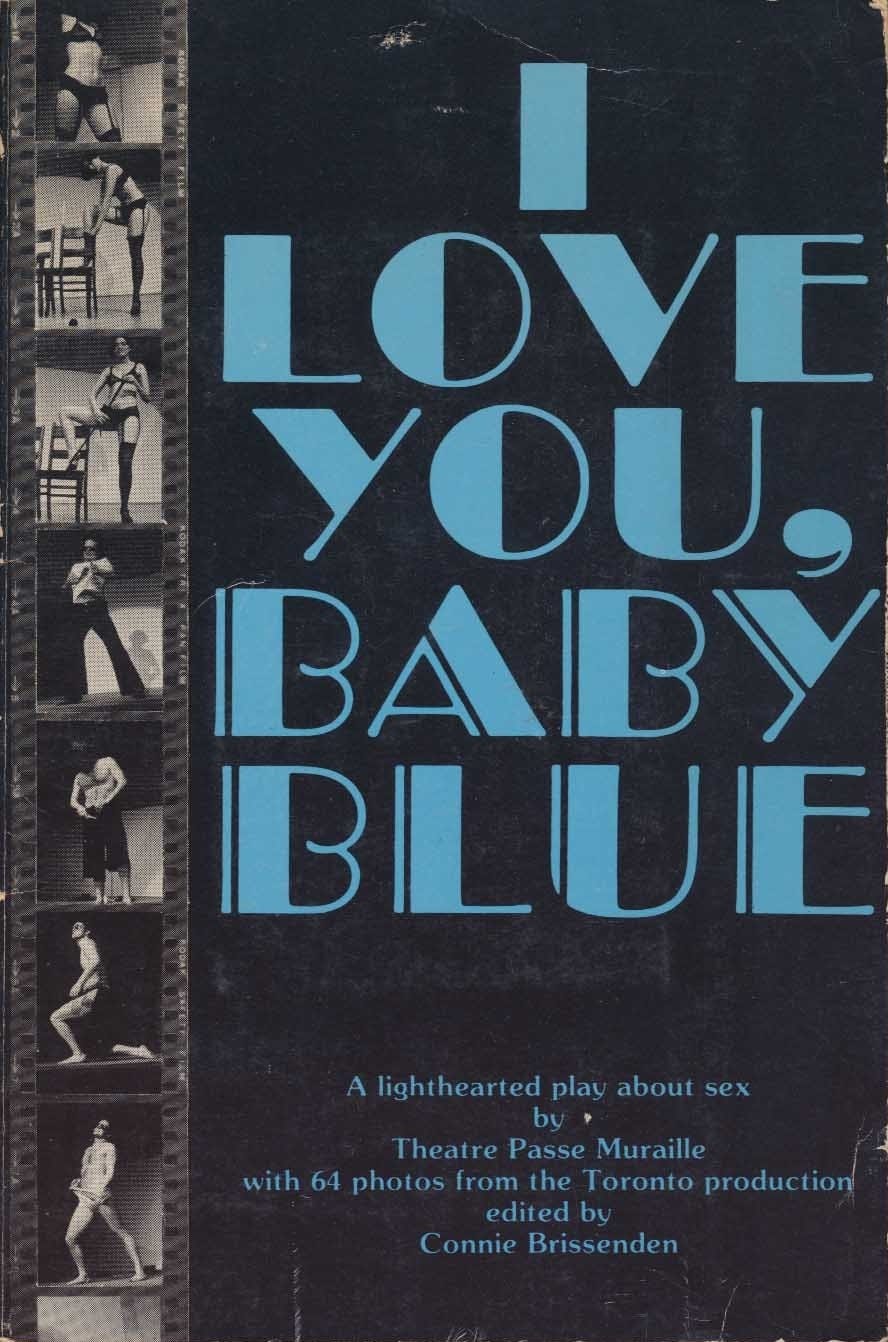
Theatre Passe Muraille (“Theatre goes through walls”) staged an original show, I Love You, Baby Blue. It used Citytv as a starting point to explore Toronto’s mushrooming sex culture—which included peep shows, body rub parlours and naughty book stores on Yonge Street. Selling out nightly, the revenue was enough for the collective to put a down payment on what remains its home at 16 Ryerson Avenue.
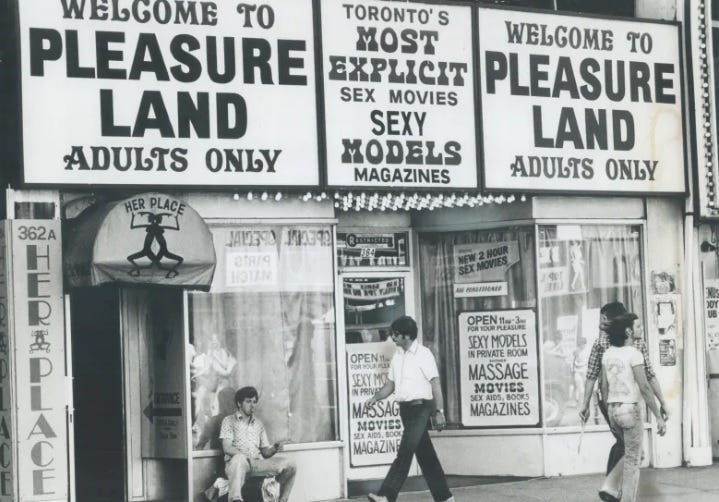
Toronto the Prude
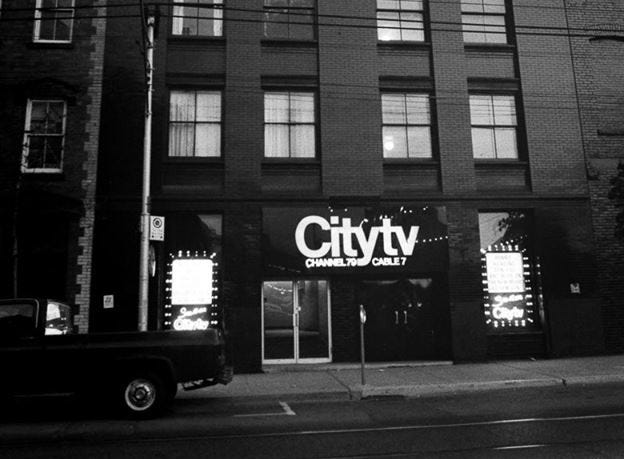
January 1975 was when the morality squad of Toronto police laid obscenity charges against Citytv, over its November airing of Love Boccaccio Style.
Znaimer engaged a priest to explain the religious nature of the film in court. “It was all right to cut off a woman’s breast but not to kiss it,” the Citytv boss remarked, regarding provincial standards of the day. (The case was eventually dismissed.)
Au revoir, Baby Blue
While the battle with the morality squad was settled, the Baby Blue was retired: the objective of eyeballs, ink and attention for Citytv was achieved. Not to mention that Znaimer was tired of it overshadowing all the other interesting stuff he was launching.
And so, on Friday, May 2, 1975, Citytv aired the Lee Marvin western Cat Ballou in its most notorious time slot, with a cheeky disclaimer:
The following program is for family audiences. We hope that those who are not offended by scenes of light entertainment with find CITY-TV’s new Friday night movie both amusing and entertaining. All others are asked to change the channel, please.
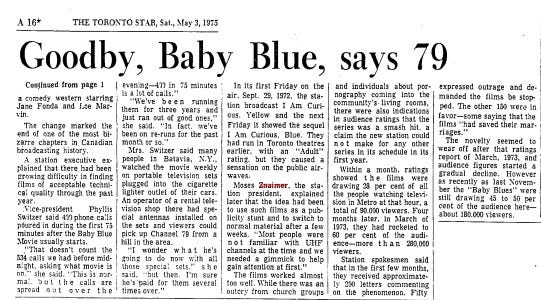
Long live the new flesh!
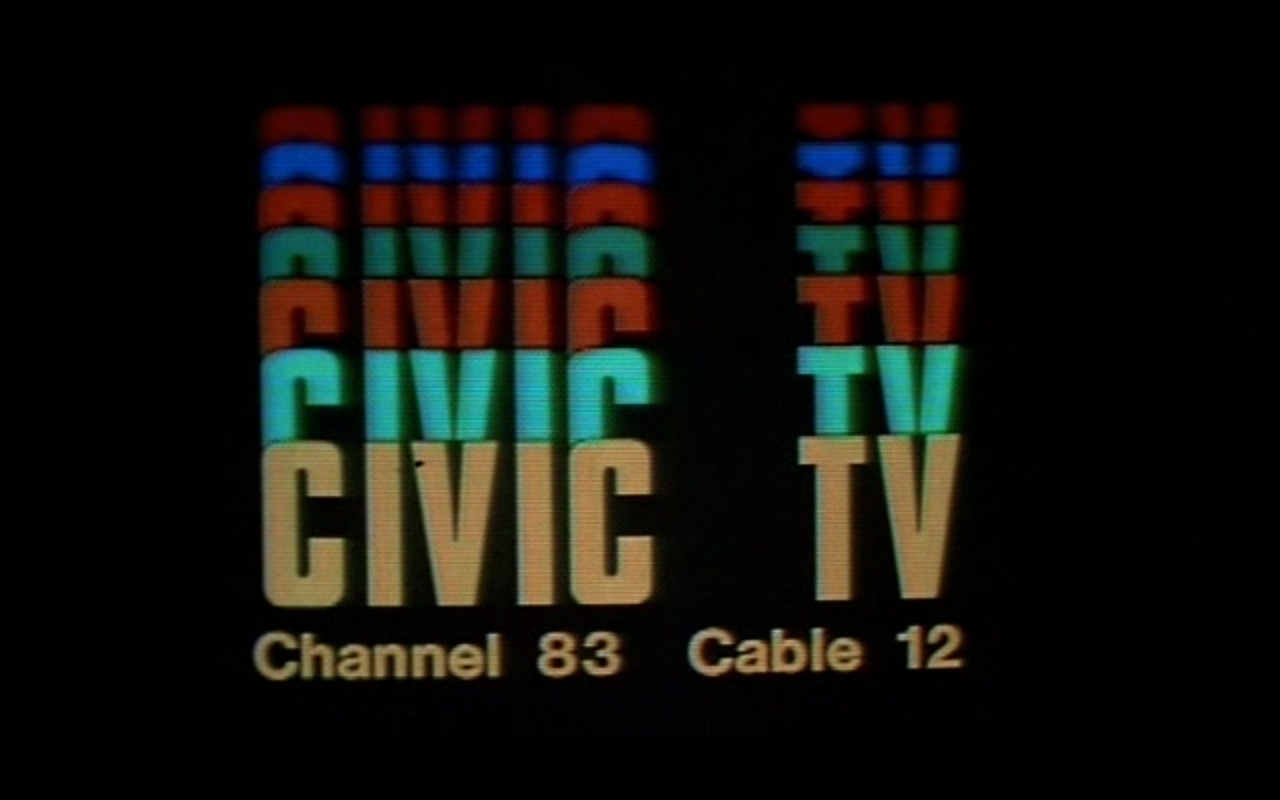
David Cronenberg’s 1983 horror/sci-fi hybrid Videodrome concerned the activities of a young television programmer Max Renn, played by James Woods, who worked for the fictional CIVIC-TV, Channel 83 in Toronto. The popularity of this low-frequency UHF station, whose notoriety is based upon the programming of salacious softcore films, leads its chief on a pursuit of more salacious fare. (First, snuff films. Later on, madness.)
Return of the Baby Blues
September 28, 1992, the 20th anniversary of Citytv, was marked with excitement for Baby Blue Returns, a broadcast of The Best of the New York Erotic Film Festival circa 1972. By then, it wouldn’t have been City without a disclaimer from Mark “The Voice” Dailey:
Citytv dusted off the branding in the late-’90s with Baby Blue 2, a companion to the infamous Ed’s Night Party. But the focus was on interchangeable straight-to-video “erotic thrillers” of the era. It was no match for the increasing access to pornography-on-demand.
It’s easy to forget that the Toronto of 47 years ago was still firmly entrenched in fundamentalist fervour. Far from being softcore filler, the Baby Blue Movie played a crucial part in defrosting a frigid city, when public attitudes to sexuality were as square as the TV set that Moses Znaimer shouldered:
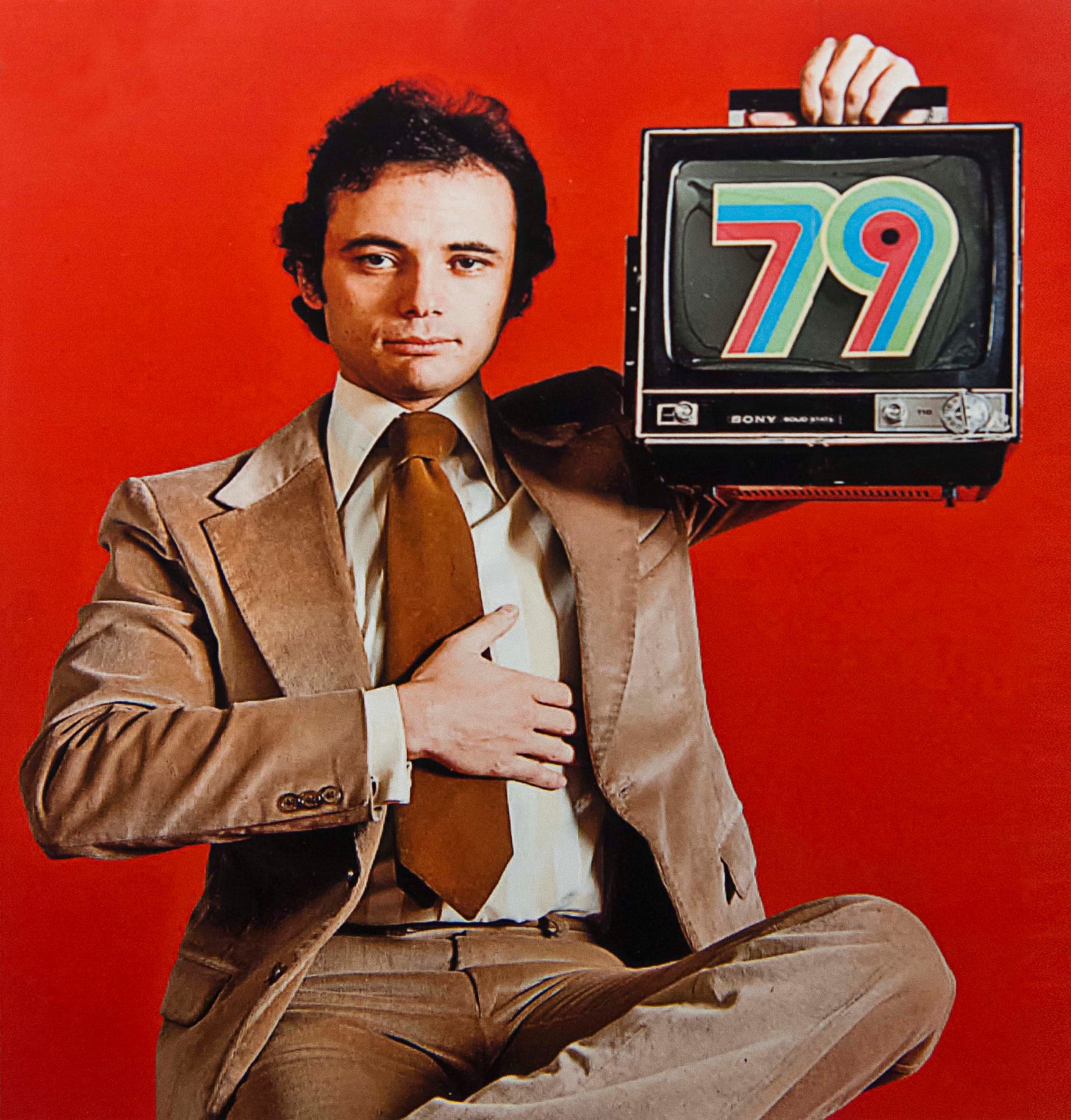
Dig some other recent Retrontarios:
“The Revolution will be televised” on 35 years since the launch of MuchMusic.
“Yes, we got fun!” commemorating the 40 years since the launch of Channel 47.
The rest of the newsletter archive of old news you can use, delivered each week.
Don’t miss the free email that covers tomorrow’s media today. Subscribe to 12:36 for Toronto’s News Burrito, returning for an October filled with surprises:

